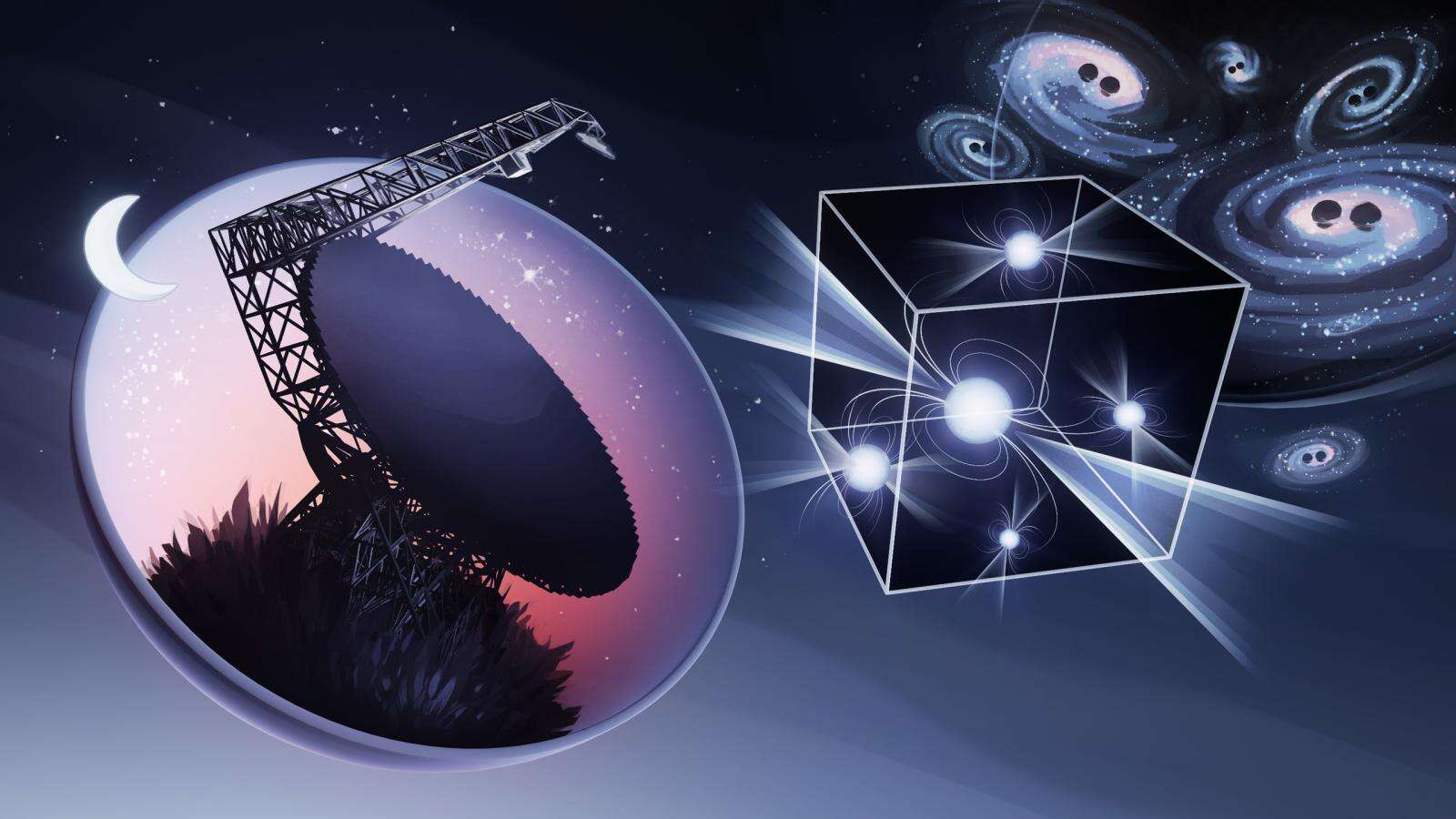Totoleheros83
Petit chat
L'annonce aura lieu demain soir (19h je pense) sur le site nanograv.
Apparemment ils auraient découvert des traces des ondes gravitationnelles liées au Big bang

 nanograv.org
nanograv.org

 www.futura-sciences.com
www.futura-sciences.com
"
As pulsar timing arrays become more and more sensitive, they will be able to measure how the amplitude of the gravitational wave background evolves as a function of frequency, which can give us clues as to what is creating the gravitational wave background. While it is widely held that supermassive black holes should generate this low-frequency background, other sources of low-frequency gravitational waves include primordial gravitational waves from inflation, the quantum fluctuations from a fraction of a second after the Big Bang, and exotic networks of cosmic strings, the theoretical, super dense filaments of matter-energy, which can be the size of the entire universe.
Probing this background will give us deeper insights into open problems in astrophysics. The secrets that are hidden within pulsar timing array data may lead to answering critical questions for astronomers. We will be able to say, for example, what will happen to our supermassive black hole, Sagittarius A*, when our galaxy collides with neighboring Andromeda.
We will also be able to say general relativity has, or has not, passed another test when huge gravitational forces are in play. Indeed, some theories predict that gravity, in very strong gravitational regimes—such as in supermassive black hole mergers—behaves differently than what Einstein suggested. According to general relativity, a supermassive black hole binary’s orbit should shrink in a specific way while emitting gravitational waves. Deviations from this could indicate new physics beyond general relativity. Gravitational waves, like light, are also polarized. General relativity predicts two polarizations (called plus and cross), but others could also exist, again pointing to either extensions of general relativity or entirely new physics.
Hopefully, within our lifetime, astronomers will gain insights into these and more open questions, all due to a whole lot of shimmies taking place throughout the universe"
Apparemment ils auraient découvert des traces des ondes gravitationnelles liées au Big bang

Join Us for our Live Briefing!

On a peut-être détecté les ondes gravitationnelles du Big Bang
On vient de détecter pour la première fois un fond cosmologique chaotique d'ondes gravitationnelles pouvant provenir de diverses sources, en particulier les trous noirs supermassifs binaires, mais...
"
As pulsar timing arrays become more and more sensitive, they will be able to measure how the amplitude of the gravitational wave background evolves as a function of frequency, which can give us clues as to what is creating the gravitational wave background. While it is widely held that supermassive black holes should generate this low-frequency background, other sources of low-frequency gravitational waves include primordial gravitational waves from inflation, the quantum fluctuations from a fraction of a second after the Big Bang, and exotic networks of cosmic strings, the theoretical, super dense filaments of matter-energy, which can be the size of the entire universe.
Probing this background will give us deeper insights into open problems in astrophysics. The secrets that are hidden within pulsar timing array data may lead to answering critical questions for astronomers. We will be able to say, for example, what will happen to our supermassive black hole, Sagittarius A*, when our galaxy collides with neighboring Andromeda.
We will also be able to say general relativity has, or has not, passed another test when huge gravitational forces are in play. Indeed, some theories predict that gravity, in very strong gravitational regimes—such as in supermassive black hole mergers—behaves differently than what Einstein suggested. According to general relativity, a supermassive black hole binary’s orbit should shrink in a specific way while emitting gravitational waves. Deviations from this could indicate new physics beyond general relativity. Gravitational waves, like light, are also polarized. General relativity predicts two polarizations (called plus and cross), but others could also exist, again pointing to either extensions of general relativity or entirely new physics.
Hopefully, within our lifetime, astronomers will gain insights into these and more open questions, all due to a whole lot of shimmies taking place throughout the universe"
Dernière édition: